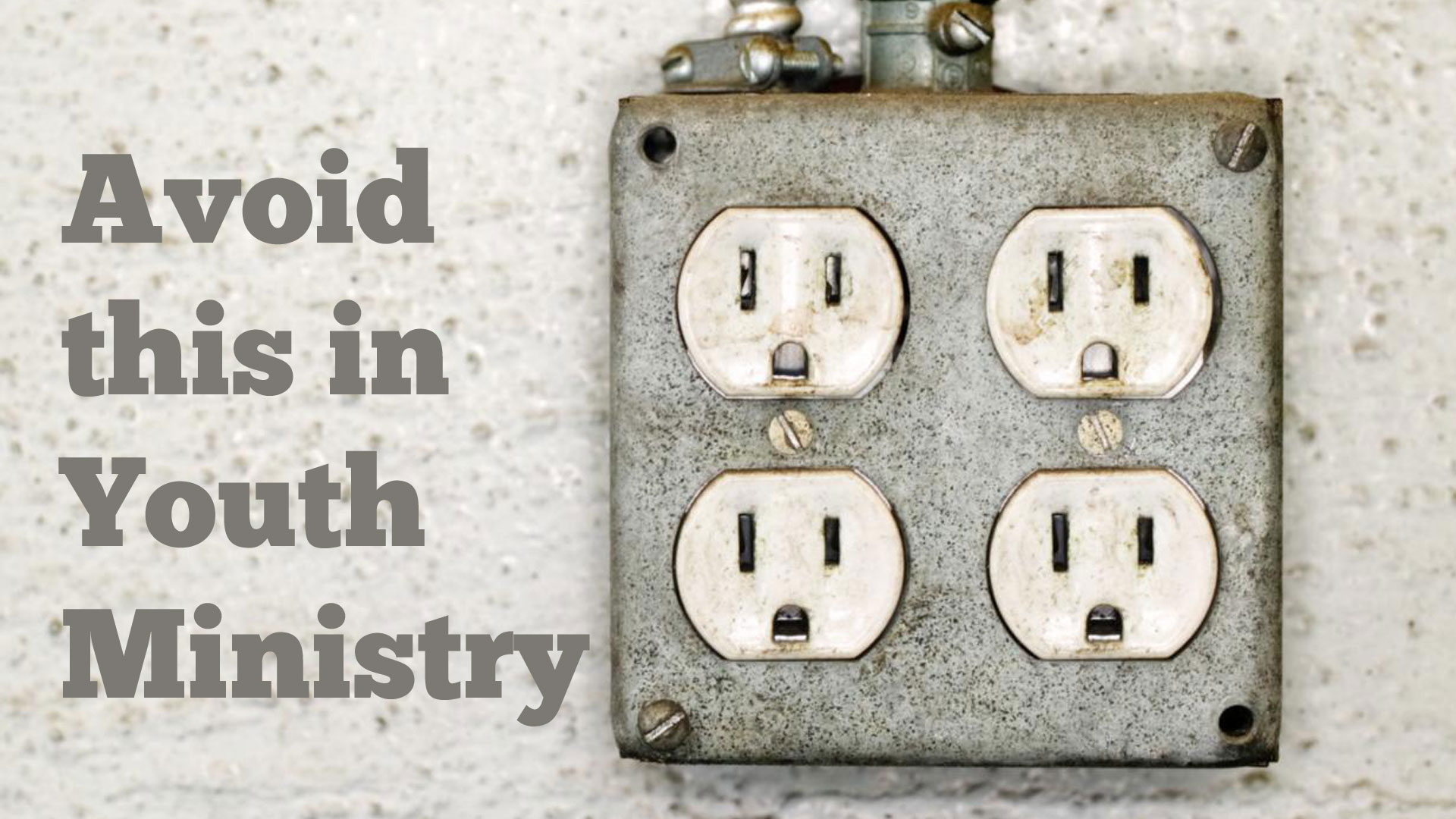I remember stopping by a garage sale this past spring, only to find one item that I desired to purchase from a complete stranger. The item was a Dewalt battery charger and battery – used in power drills.
I asked if it worked. This kind lady pointed to an outlet on her garage wall and told me to plug it in. I proceeded to do so, and when I did, a little red light illuminated. I was pleased, paid her the $4, and went home.
When I got home and after some charge time, I tested the battery. It was dead. When I tested the battery charger, it did not charge. Both items became useless soon after this procedure. Oh well, it was only $4 right? But, if you are like me, I hate wasting money, even $4 worth.
Just by me simply plugging it in in that old garage outlet, it didn’t mean it worked.
WHY PROGRAM
If you find yourself in youth ministry at a local church setting, one of the things that seems pretty standard and consistent every 7 days is providing a “program” for youth when they walk through the doors of your church. The majority of the time, the time spent in the 60-120 minutes allotted needs to have some kind of plan and organization. Time is a limited resource, and it seems even more limited when we are investing in students’ lives. If we only have a sliver of their time each week, wasting that time seems ungodly. So we have to have something planned right?! Raise your hand if you scramble to put together a “program” and hope it will keep the attention of the students present, hoping they will walk away with some nugget of truth.
But have you ever wondered why we program? Take a moment and seriously ask yourself why. Getting yourself to answer the “why” is crucial, as I imagine you want to make the greatest impact with your resources.
Before I proceed further into the “why,” I want to define what programming is. Or at least how I define programming.
Programming:
The environment that we create for students to encounter the glory of God in a larger corporate setting. This is the main sessions we have with students when they all come to gather.
For NTS Camp, it is both the morning and evening sessions each day a student is at camp with us. The students come to gather together, what is our plan during those 60-120 minutes?
Now, if I were to ask you what main elements you include in your program, what elements seem to appear every week?
Game?
Music?
Message?
Here are the basics right? Nothing new. About as complicated as rocket science, but a rocket or two short.
But, how many of us get to these elements each week and it just becomes a power outlet? We just plug something in it, and pray it will work. But we fail to put more thought into it. If it works, score! If it doesn’t, oh well, not a lot of time was invested.
ASK THE WHY
In order to avoid the “plug and pray” mentality, I ask the why.
What is the reason why the students are there?
What is the reason why we are there – what do we want to accomplish?
Why do we program certain elements throughout?
Why put one element before or after another element?
Why do we send the students to small group?
Seriously ask yourself these questions:
Why play games?
Why sing worship songs?
Why speak a message?
Why gather in small groups?
How many of you think of and incorporate small groups into your program as the 4th element? Or is it just another thing you plug into the night at the end of your “program” because that is what we are “supposed” to do in youth ministry?
AVOID THE PLUG AND PRAY
When we can answer these “why” questions each time we brainstorm, our program starts to have more meaning and more intentionality to it. You no longer just plug in something and pray it works. Instead, it gives you the filter as to why you are doing what you are doing as a youth leader. Our time starts to feel more like an investment.
We don’t get to refund our time once it’s spent. If we aren’t wise in how we spend it each week, it goes wasted. We can’t afford to just hope and pray things will work.
Not to say that even if we are intentional that we won’t have elements that don’t work out, but at this point you may have a better idea of why it didn’t.
By repeating this process of intentionality in the program, over time, I believe you will see the results of your investment. I believe answering the “why” is necessary in order to be effective in our programming.
Jayson Brewer
Director of Production & Program Design
Never The Same
© 2015, Never The Same


